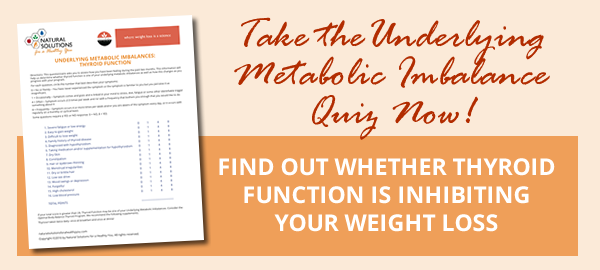“Eat less, exercise more” we are told. This has been the accepted weight loss formula for as long as anyone can remember. And it doesn’t work. Only 2‐3% of dieters maintain weight loss for over three years. This system ‐ of having people track calories, keep track of points and/or eat pre‐packaged, pre‐made or processed meals ‐ does nothing to help people lose weight and only compounds the confusion.
The question looms, “Why is it so difficult to lose weight?” Obesity isn’t just a calorie problem or an exercise problem – it is a metabolism problem. The fact is there are several fundamental underlying imbalances that prevent most people from losing weight and keeping it off. The problem is, they don’t know what those imbalances are and neither does their doctor.
In order to become healthy, you must first realize that you are unique. Just as none of us have the exact same physical attributes or personalities, we also possess our own unique biochemical and metabolic blueprint. This means that your nutritional, physical, emotional and psychological needs are unique and that the typical “one‐diet” or “one‐health” recipe approach that has been sold to the masses, won’t work for the majority of the population. To get and stay well (and lose weight if you need to), the underlying reasons preventing you from achieving your health goals must be identified and addressed.
Our research and clinical experience has revealed that many people have a disrupted metabolism preventing them from attaining permanent weight loss. We call these areas “underlying metabolic imbalances” or UMIs. These imbalances affect the way the body utilizes and stores nutrients. Having one or more of these UMIs makes it difficult, if not impossible, to lose body fat and maintain ideal weight. UMIs include: Stress, Sleep, Insulin resistance, Neurotransmitter imbalances, Thyroid fatigue, Gut dysbiosis, Toxic burden, Sex hormone imbalances and Inflammation.



